0
News Article
Community:
Dec 31, 2018
The USDA’s rental housing inventory comprises 416,000 subsidized units with an estimated 435,000 residents. Two reports this year found that, in the absence of more federal funding and better planning, the program will shed some 20,000 units by 2027. At that point, analysts predict, the loss rate will accelerate through 2050 with up to another 380,000 units expected to exit the program, gutting the overall supply by 90 percent or more.
Authored by: Martin Kuz for The Christian Science Monitor
Topics: Homelessness, Housing, Low-income, Research, West Coast
 Shared by Mica O'Brien
Shared by Mica O'Brien
Mica O'Brien posted a
on Jan 7, 2019
Martin Kuz for The Christian Science Monitor
The USDA’s rental housing inventory comprises 416,000 subsidized units with an estimated 435,000 residents. Two reports this year found that, in the absence of more federal funding and better planning, the program will shed some 20,000 units by 2027.
0
News Article
Community:
Dec 7, 2018
On any given day, there are over 400,000 kids in foster care in the United States, according to the U.S. Department of Health and Human Services. A little more than half will find homes. For kids and parents making that transition, the Bridge Meadows housing community in Portland, Oregon is experimenting with inter-generational living to help the new families work. Based on a model in rural Illinois, Bridge Meadows rents town homes to children who are making the transition out of foster care, and their adoptive parents, at far below the market rate. It also offers affordable housing for its senior residents, who assist with child care as part of their lease agreement.
Authored by: Melanie Sevcenko for MarketPlace
Topics: Dual-generation, Foster care, Housing, Low-income, Place-based, Seniors, West Coast
 Shared by Mica O'Brien
Shared by Mica O'Brien
Mica O'Brien posted a
on Dec 13, 2018
Melanie Sevcenko for MarketPlace
On any given day, there are over 400,000 kids in foster care in the United States, according to the U.S. Department of Health and Human Services. A little more than half will find homes.
0
Report
Community:
Nov 14, 2018
Denver’s expansion of supportive housing through the Denver Supportive Housing Social Impact Bond Initiative is beginning to pay off for the city of Denver, its homeless residents, and a group of investors banking on social impact. This fact sheet highlights interim results of the program.
Authored by: Urban Institute
Topics: Housing, Research, Supportive housing, West Coast
 Shared by Mica O'Brien
Shared by Mica O'Brien
Mica O'Brien posted a
on Dec 12, 2018
Denver’s expansion of supportive housing through the Denver Supportive Housing Social Impact Bond Initiative is beginning to pay off for the city of Denver, its homeless residents, and a group of investors banking on social impact. This fact sheet highlights interim results of the program.
0
Interactive
Community:
Nov 13, 2018
The California Homeless Youth Project and SchoolHouse Connection are proud to announce a series of five practical guides to support homeless and low-income college students in California. These series provide concise overviews of the five greatest needs of students experiencing homelessness.
Authored by: SchoolHouse Connection
Topics: Homelessness, Housing, Low-income, Post-secondary, West Coast, Youth
 Shared by Mica O'Brien
Shared by Mica O'Brien
Mica O'Brien posted a
on Nov 19, 2018
The California Homeless Youth Project and SchoolHouse Connection are proud to announce a series of five practical guides to support homeless and low-income college students in California. These series provide concise overviews of the five greatest needs of students experiencing homelessness.
0
Webinar
Community:
Oct 8, 2018
During this All In webinar, Caroline Fichtenberg of SIREN reviewed the current landscape of assessment tools and outcomes measures for social needs. Karis Grounds of 2-1-1 San Diego explained how they incorporated social needs assessment into their Risk Rating Scale, which helps them better serve clients while showing the impact of their services.
Authored by: All In: Data for Community Health
Topics: Data sharing, Health, Low-income, Metrics, Partnerships, West Coast
 Shared by Mica O'Brien
Shared by Mica O'Brien
Mica O'Brien posted a
on Oct 10, 2018
All In: Data for Community Health
During this All In webinar, Caroline Fichtenberg of SIREN reviewed the current landscape of assessment tools and outcomes measures for social needs.
1
News Article
Community:
Sep 11, 2018
San Francisco health officials working to end HIV infections and deaths in The City are zeroing in on the homeless population, where there’s been an uptick in new cases.
Authored by: Joshua Sabatini for
Topics: Health, Homelessness, Legislation & Policy, Low-income, Preventative care, West Coast
 Shared by Mica O'Brien
Shared by Mica O'Brien
Mica O'Brien posted a
on Sep 18, 2018
San Francisco health officials working to end HIV infections and deaths in The City are zeroing in on the homeless population, where there’s been an uptick in new cases.
0
Interactive
Community:
Sep 18, 2018
Understanding the characteristics of infants and toddlers in our states and communities is an important first step for supporting children’s development during their most critical years. Making more detailed and comprehensive information available on the young children living in different communities can help stakeholders more strategically develop and target key services such as child care, home visiting, or other services for young children. For example, knowing how many young children live in low-income families and what share have parents working full time can help states and localities tailor child care investments and services to reach those families who most need assistance.
Authored by: Cara Lou and Gina Adams for Urban Institute
Topics: Early childhood, East Coast, Health, Legislation & Policy, Midwest, South, West Coast
 Shared by Mica O'Brien
Shared by Mica O'Brien
Mica O'Brien posted a
on Sep 18, 2018
Cara Lou and Gina Adams for Urban Institute
Understanding the characteristics of infants and toddlers in our states and communities is an important first step for supporting children’s development during their most critical years.
0
Policy Brief
Community:
Jul 17, 2018
The Denver Social Impact Bond program is an initiative aimed at measurably improving the lives of people most in need by driving resources towards better, more effective programs. Social Impact Bonds are a unique type of performance-based contract where private and/or philanthropic lenders loan funds to accomplish a specific objective and are repaid based on whether the program achieves its goals. Denver’s Social Impact Bond program will use funds from lenders to provide housing and supportive case management services to at least 250 homeless individuals who frequently use the city’s emergency services, including police, jail, the courts and emergency rooms.
Authored by:
Topics: Community development, Cost effectiveness, Criminal justice, Health, Homelessness, Housing, Low-income, Mental health, Partnerships, Stability, Substance abuse, West Coast
 Shared by Housing Is
Shared by Housing Is
Housing Is posted a
on Jul 17, 2018
The Denver Social Impact Bond program is an initiative aimed at measurably improving the lives of people most in need by driving resources towards better, more effective programs.
0
Case study
Community:
Jul 17, 2018
The Mariposa Healthy Living Initiative began in 2009, when the Denver Housing Authority and its master planning team established physical, mental, and community health as a proxy to understand how redevelopment actions would change the quality of life for residents. The Initiative recognizes that the built environment is a determinant of health outcomes, which ultimately influence the quality and length of life for residents. The Initiative uses a responsive and rigorous approach to address environmental and social determinants of health, which include Healthy Housing, Environmental Stewardship, Sustainable and Safe Transportation, Social Cohesion, Public Infrastructure, and Healthy Economy. The Initiative framework is intended to be a living implementation tool for designers, developers, and practitioners.
Authored by:
Topics: Housing, Low-income, Partnerships, Place-based, Preventative care, Research, Safety, Transportation, West Coast
 Shared by Housing Is
Shared by Housing Is
Housing Is posted a
on Jul 17, 2018
The Mariposa Healthy Living Initiative began in 2009, when the Denver Housing Authority and its master planning team established physical, mental, and community health as a proxy to understand how redevelopment actions would change the quality of life for residents.
0
Publication
Community:
Jul 13, 2018
This fact sheet describes how a landlord may legally prohibit smoking in common spaces and individual units, and explains how to implement a smokefree policy in compliance with the rent control law, where applicable. It also includes options for addressing possible enforcement and compliance issues that may arise once a policy is in place.
Authored by:
Topics: Family engagement, Health, Housing, Low-income, Smoke-free, West Coast
 Shared by Housing Is
Shared by Housing Is
Housing Is posted a
on Jul 13, 2018
This fact sheet describes how a landlord may legally prohibit smoking in common spaces and individual units, and explains how to implement a smokefree policy in compliance with the rent control law, where applicable.
0
Publication
Community:
Jul 13, 2018
This guide is intended to provide information to public health department staff and advocates about the many public agencies that make policy decisions and implement projects related to the physical environment.
Authored by:
Topics: Child welfare, Community development, Education, Exercise, Green, Health, Housing, Legislation & Policy, Place-based, Safety, Smoke-free, Stability, Substance abuse, West Coast
 Shared by Housing Is
Shared by Housing Is
Housing Is posted a
on Jul 13, 2018
This guide is intended to provide information to public health department staff and advocates about the many public agencies that make policy decisions and implement projects related to the physical environment.
0
News Article
Community:
Jul 5, 2018
"There's no silver bullet" to end chronic absenteeism, but a simple "nudge" letter has shown real success in reducing truancy. It's working in Tacoma, and it's caught the interest of the Seattle Housing Authority, which houses 10 percent of Seattle's public-school students.
Authored by: Neal Morton for The Seattle Times
Topics: Attendance, Dual-generation, East Coast, Education, Family engagement, Low-income, Research, West Coast, Youth
 Shared by Housing Is
Shared by Housing Is
Housing Is posted a
on Jul 9, 2018
Neal Morton for The Seattle Times
"There's no silver bullet" to end chronic absenteeism, but a simple "nudge" letter has shown real success in reducing truancy.
0
News Article
Community:
Aug 1, 2016
Boulder County, Colo., pioneered the movement. What can others learn from their experience?
Authored by: Mattie Quinn for Governing the State and Localities
Topics: Cost effectiveness, Data sharing, Dual-eligibles, Food insecurity, Health, Homelessness, Housing, Legislation & Policy, Low-income, Medicaid / Medicare, Partnerships, Place-based, Supportive housing, West Coast
 Shared by Housing Is
Shared by Housing Is
Housing Is posted a
on Jul 5, 2018
Mattie Quinn for Governing the State and Localities
Boulder County, Colo., pioneered the movement. What can others learn from their experience?
0
Report
Community:
Dec 6, 2017
It adds to the growing body of evidence that addressing homelessness saves money elsewhere.
Authored by: J.B. Wogan for Governing the States and Localities
Topics: Cost effectiveness, Criminal justice, Health, Healthy homes, Homelessness, Housing, Legislation & Policy, Place-based, Preventative care, Research, Stability, West Coast
 Shared by Housing Is
Shared by Housing Is
Housing Is posted a
on Jul 5, 2018
J.B. Wogan for Governing the States and Localities
It adds to the growing body of evidence that addressing homelessness saves money elsewhere.
0
Video
Community:
Jul 19, 2017
Authored by: CLPHA
Topics: CLPHA, Data sharing, Education, Housing, Low-income, Pacific Northwest, Partnerships, West Coast
 Shared by CLPHA Admin
Shared by CLPHA Admin
CLPHA Admin posted a
on Jul 19, 2017
Recorded at CLPHA's 2017 Affordable Housing & Education Summit on July 12, 2017.
Increasingly, a wide range of entities—housers, educators, cities—are using data sharing to increase effectiveness across systems. Yet, many systems still do not want to engage in dating sharing or have encountered resistance. This roundtable not only discusses how partners made data sharing possible, but also looks to the future: how the process has gone since initial implementation, what partners have learned from their data sharing efforts, and next steps for the work.
0
Video
Community:
Jul 19, 2017
Authored by: CLPHA
Topics: CLPHA, Education, Housing, Low-income, Partnerships, Post-secondary, West Coast, Workforce development, Youth
 Shared by CLPHA Admin
Shared by CLPHA Admin
CLPHA Admin posted a
on Jul 19, 2017
Recorded at CLPHA's 2017 Affordable Housing & Education Summit on July 12, 2017.
What are we learning about key connections and supports for adolescents in public/affordable housing that enable high school graduation and successful transitions to higher education and/or good jobs? This panel explores recent research findings as well as on-the-ground examples.

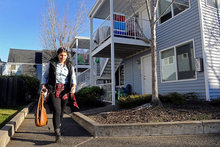

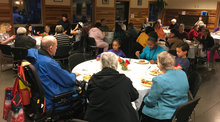
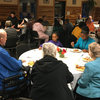
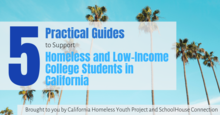
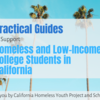


 Shared by Housing Is
on Jul 17, 2018
Shared by Housing Is
on Jul 17, 2018
 Shared by Housing Is
on Jul 17, 2018
Shared by Housing Is
on Jul 17, 2018
 Shared by Housing Is
on Jul 13, 2018
Shared by Housing Is
on Jul 13, 2018
 Shared by Housing Is
on Jul 13, 2018
Shared by Housing Is
on Jul 13, 2018
 Shared by Housing Is
on Jul 9, 2018
Shared by Housing Is
on Jul 9, 2018
 Shared by Housing Is
on Jul 5, 2018
Shared by Housing Is
on Jul 5, 2018

 Shared by Housing Is
on Jul 5, 2018
Shared by Housing Is
on Jul 5, 2018


 Shared by CLPHA Admin
on Jul 19, 2017
Shared by CLPHA Admin
on Jul 19, 2017


 Shared by CLPHA Admin
on Jul 19, 2017
Shared by CLPHA Admin
on Jul 19, 2017
